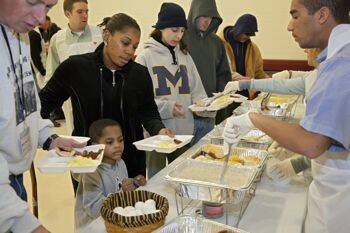Poverty in households with children is rising in nearly all 34 member states of the Organization for Economic Cooperation and Development, according to a new OECD report. The OECD’s first-ever report on family well-being, “Doing Better for Families,” found that the share of children living in poor households has reached 12.7 percent across the OECD and that families with children are more likely to be poor today than in previous decades, when the poorest in society were more likely to be pensioners. “Doing Better” reports that one in five children in Israel, Mexico, Turkey, the United States and Poland live in poverty. The report recommends that OECD governments should ensure that family support policies protect the most vulnerable. “Family benefits need to be well designed to maintain work incentives, but they need to be effective in protecting the most vulnerable, otherwise we risk creating high, long-term social costs for future generations” said OECD Secretary-General Angel Gurría.
The report also documents a dramatic change in families across the OECD in just a generation. With fertility rates dropping from 2.2 children per woman to 1.7 over the past three decades, families are getting smaller. Fewer people are getting married and among those that are, divorce rates are rising. Women are better educated than ever before, and overtaking men in the process: more than one-third of women under 35 have now completed a university education (compared to just over 20 percent twenty years ago). Even as poverty rates increase, the study found that there are more dual-earner than one-earner couple families in almost every country. Female employment in the OECD has risen in the past 15 years by more than 10 percentage points, from just over half of women working in the mid-1990s to nearer 60 percent in 2009.
In response to increasing family poverty, the OECD recommends that governments should: ensure that work pays for both parents, including through assistance with childcare costs; help families combine work and care commitments, through an integrated set of leave, care and workplace support for parents of young children; design parental leave systems that encourage more fathers to take and share leave and promote their engagement with homecare responsibilities; start investing in family policies during the early years and sustain investment throughout childhood; ensure high-quality childcare services are linked to improved cognitive development, especially for children from poor households. “More family-friendly workplaces, equal career prospects for men and women, and a better sharing of care responsibilities not only make economic sense, they are a moral and political imperative,” said Mr. Gurría.








